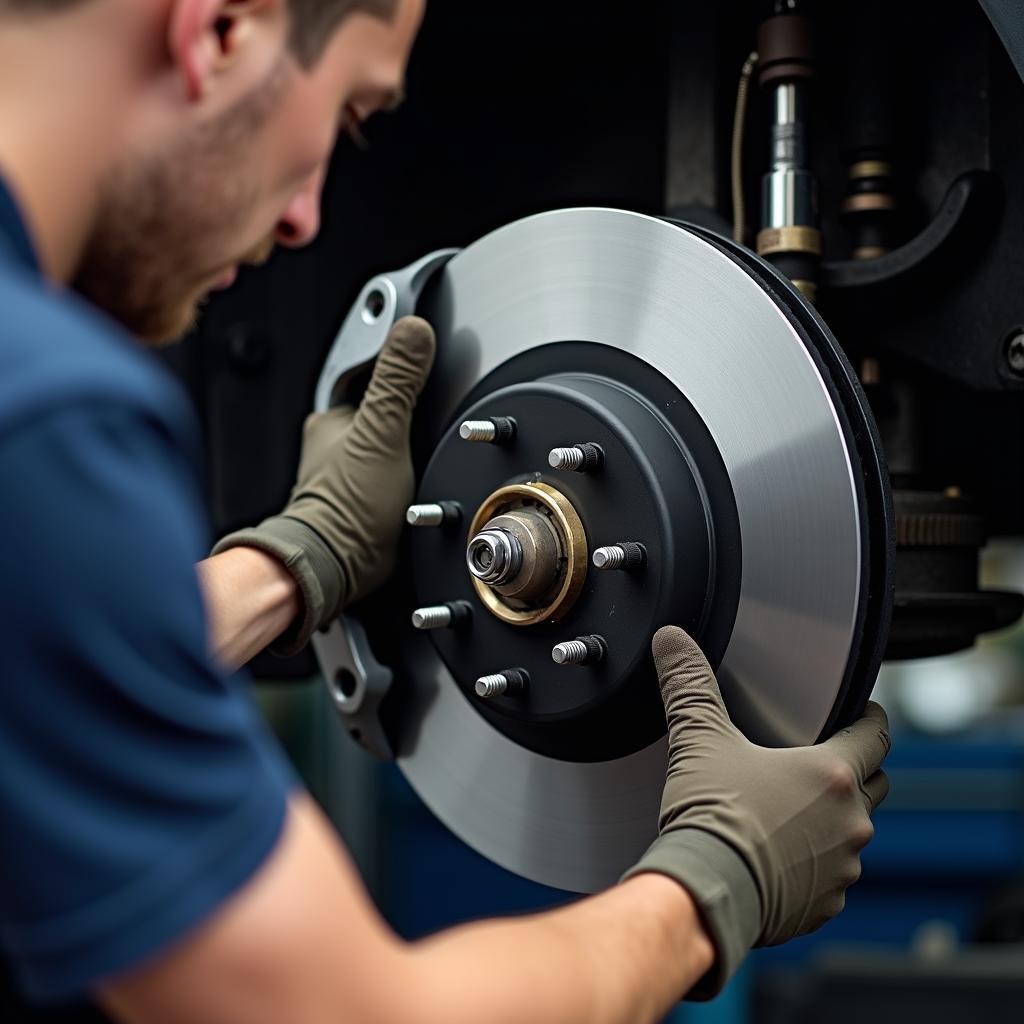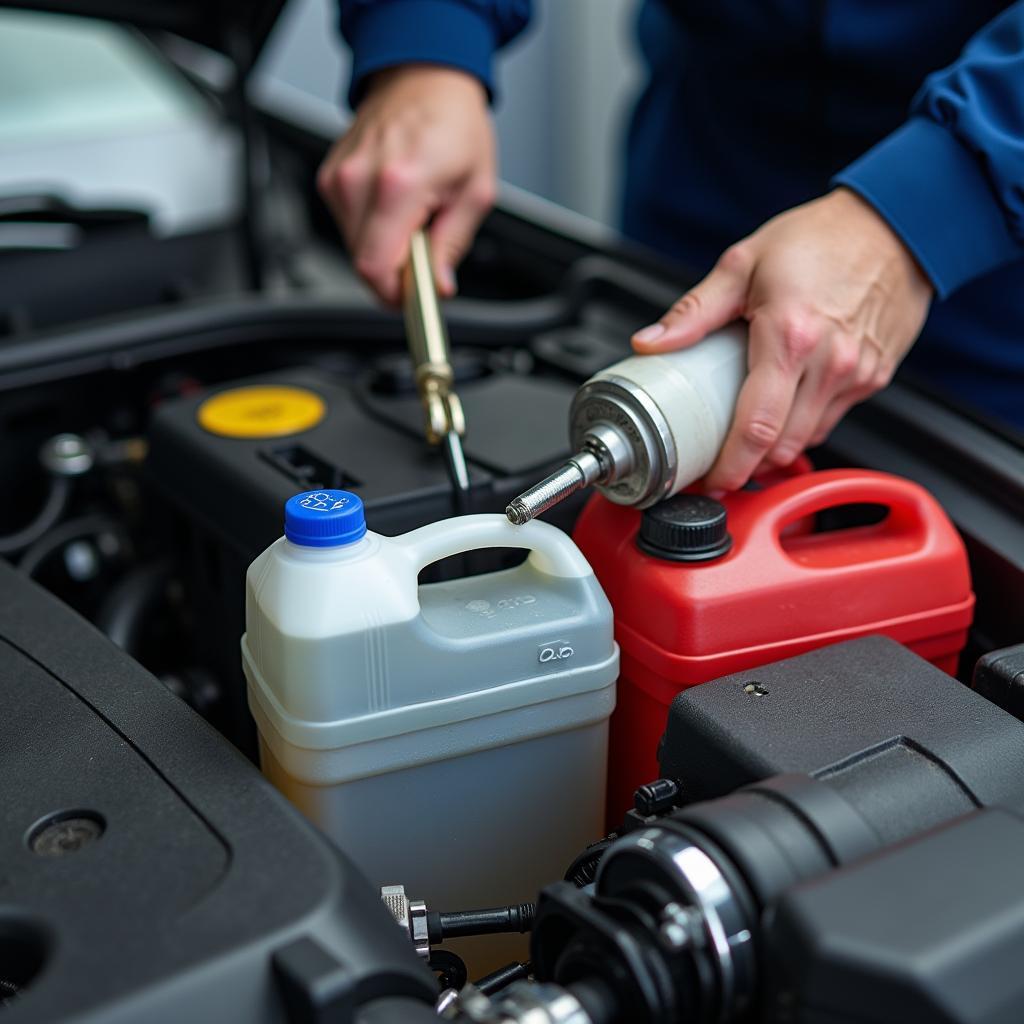A full car service goes beyond a simple oil change. It’s a comprehensive check-up designed to keep your vehicle running smoothly and safely. Understanding what comes under a full car service is crucial for every car owner. It not only helps you maintain your car’s performance but also prevents costly repairs down the line. Let’s dive into the specifics of a full car service and what you can expect.
Key Components of a Full Car Service
A full car service covers a wide range of checks and replacements, focusing on key areas like the engine, brakes, suspension, and electrical systems. This in-depth inspection helps identify potential problems before they become major issues.
Engine Inspection and Maintenance
The engine, being the heart of your car, receives significant attention during a full service. Technicians typically check the oil level and condition, replacing it if necessary. They also inspect the air filter, spark plugs, and various belts and hoses for wear and tear. A thorough engine inspection is crucial for maintaining optimal performance and fuel efficiency.
Do you know when your car needs servicing? Check out when should my car get serviced.
Brake System Check
The brake system is vital for your safety. A full car service includes a thorough inspection of brake pads, discs, and fluid levels. Technicians will check for any signs of wear or damage and recommend replacements if needed. Ensuring your brakes are in top condition is paramount for safe driving.
 Brake System Inspection During Full Car Service
Brake System Inspection During Full Car Service
Suspension and Steering Examination
A well-functioning suspension system is essential for a comfortable and controlled ride. During a full car service, mechanics examine the shock absorbers, struts, and other suspension components. They also check the steering system for proper alignment and responsiveness. This ensures your car handles well and provides a smooth driving experience.
Electrical System Diagnostics
Modern cars rely heavily on their electrical systems. A full service includes a comprehensive check of the battery, alternator, starter motor, and lighting. Technicians use diagnostic tools to identify any electrical faults and ensure all systems are working correctly. This prevents unexpected breakdowns and ensures all electrical components function as intended. Wondering if outside servicing is better? Explore is better do car service from outside.
Fluid Top-Ups and Replacements
Various fluids are essential for the proper functioning of your car. A full service typically includes topping up or replacing fluids like coolant, brake fluid, power steering fluid, and windscreen washer fluid. Maintaining the correct fluid levels is vital for preventing damage to critical components.
 Car Fluid Top-up During a Full Service
Car Fluid Top-up During a Full Service
What does a full car service cost?
The cost of a full car service can vary based on factors such as the make and model of your vehicle, the location of the service center, and the specific services included. However, it’s a worthwhile investment that helps maintain your car’s value and prevent expensive repairs in the long run. For more information on GST input for car servicing, visit can we take gst input on car servicing. Also, if you’re curious about GST input, read more on can i get gst input for car servicing.
Quote from John Smith, Senior Automotive Technician at Elite Auto Repair: “A full car service is like a health check-up for your vehicle. It’s essential for identifying potential problems early on and ensuring your car stays in optimal condition.”
Conclusion
Understanding what comes under a full car service empowers you to make informed decisions about your vehicle’s maintenance. Regular full car services are a crucial aspect of car ownership, ensuring safety, reliability, and optimal performance. Don’t neglect this essential maintenance procedure; it’s an investment in the longevity and safety of your vehicle.
FAQ
- How often should I get a full car service? Generally, every 12 months or 12,000 miles, whichever comes first.
- What’s the difference between a full and interim service? A full service is more comprehensive.
- Do I have to go to the dealership for a full service? No, reputable independent garages also offer full car services.
- Can a full service improve fuel efficiency? Yes, maintaining a well-tuned engine can optimize fuel consumption.
- What if I don’t get my car serviced regularly? You risk more significant and costly repairs in the future.
Common Car Service Scenarios
- Scenario 1: Noticing unusual noises or vibrations? A full Car Service can diagnose the issue.
- Scenario 2: Planning a long road trip? A full service ensures your car is in top condition for the journey.
- Scenario 3: Experiencing reduced fuel efficiency? A service can help identify potential causes.
Further Exploration
For more information about small enterprises in the automotive sector, you can explore does car and tractor service centre comes under small enterpranier.
Need help? Contact us via WhatsApp: +1(641)206-8880 or email [email protected]. Our 24/7 customer support team is ready to assist you.
Leave a Reply